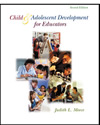 |
1 |  | 
The Piagetian stage characterized by the ability to develop goal-directed behavior, means-end thinking, and object permanence. |
|  | A) | concrete operations |
|  | B) | formal operations |
|  | C) | preoperations |
|  | D) | sensorimotor |
 |
 |
2 |  | 
The Piagetian stage characterized by the ability to use symbols and words to think, intuitive problem-solving, but thinking limited by rigidity, centration, and egocentrism. |
|  | A) | concrete operations |
|  | B) | formal operations |
|  | C) | preoperations |
|  | D) | sensorimotor |
 |
 |
3 |  | 
Piagetian stage characterized by the development of logical operations for seriation, classification, and conservation. Thinking is tied to real events and objects. |
|  | A) | concrete operations |
|  | B) | formal operations |
|  | C) | preoperations |
|  | D) | sensorimotor |
 |
 |
4 |  | 
Piagetian stage characterized by the development of abstract systems of thought that allow them to use prepositional logic, scientific reasoning, and proportional reasoning. |
|  | A) | concrete operations |
|  | B) | formal operations |
|  | C) | preoperations |
|  | D) | sensorimotor |
 |
 |
5 |  | 
What is the logical rule of transitivity? |
|  | A) | the ability to infer the relationship between two objects by knowing the relationship of each to a third |
|  | B) | the ability to mentally reverse operations |
|  | C) | the understanding that an object that is out of sight still exists |
|  | D) | the understanding of causation |
 |
 |
6 |  | 
To what does horizontal decalage refer? |
|  | A) | the ability to think logically about time |
|  | B) | the inconsistency of children's thinking within a stage |
|  | C) | the tendency of children to assimilate rather than accommodate |
|  | D) | the ability to conserve number |
 |
 |
7 |  | 
Which of the following conservation skills is likely to appear first? |
|  | A) | conservation of area |
|  | B) | conservation of numbers |
|  | C) | conservation of volume |
|  | D) | conservation of weight |
 |
 |
8 |  | 
Which of the following is not a characteristic of concrete operational thinking? |
|  | A) | ability to think abstractly |
|  | B) | ability to conserve |
|  | C) | ability to think logically about real things and events |
|  | D) | ability to engage in matrix classification |
 |
 |
9 |  | 
Which of the following is a defining characteristic of formal operational thinking? |
|  | A) | abstract thinking |
|  | B) | object permanence |
|  | C) | intuitive thought |
|  | D) | conservation |
 |
 |
10 |  | 
The ability to draw a logical inference based on the relationship between two statements or premises is known as what? |
|  | A) | hypothetico-deductive reasoning |
|  | B) | combinatorial reasoning |
|  | C) | propositional logic |
|  | D) | proportional reasoning |
 |
 |
11 |  | 
When adults break tasks into a set of subroutines that the child can successfully complete on his or her own, in which of the elements of the scaffolding process are they engaging? |
|  | A) | controlling frustration |
|  | B) | maintaining participation |
|  | C) | providing feedback |
|  | D) | simplifying the task |
 |
 |
12 |  | 
Which of the following is a conclusion of Tudge and Rogoff (1989) regarding children working together? |
|  | A) | Children should work with others of the same age. |
|  | B) | Adult-child interactions may be more beneficial than peer interactions when children are first learning new skills or concepts. |
|  | C) | Children do not need carefully structured conditions to learn well from each other. |
|  | D) | Children almost always learn more from working with their peers than
they do from working with adults or older children. |
 |
 |
13 |  | 
Vygotsky's term for the process of constructing an internal representation of external physical actions or mental operations is _______________________. |
|  | A) | community of learners |
|  | B) | internalization |
|  | C) | scaffolding |
|  | D) | zone of proximal development |
 |
 |
14 |  | 
Which of the following is a difference between the theories of Piaget and Vygotsky?Which of the following is a difference between the theories of Piaget and Vygotsky? |
|  | A) | Piaget places greater importance on the role of language in cognitive development. |
|  | B) | Vygotsky places greater importance on the role of language in cognitive development. |
|  | C) | Piaget did not believe in distinct stages of cognitive development. |
|  | D) | Piaget was a social constructivist. |
 |
 |
15 |  | 
Which of the following is true according to Vygotsky? |
|  | A) | Knowledge is individually constructed. |
|  | B) | Knowledge is constructed between people as they interact. |
|  | C) | Knowledge is gained through reinforcement. |
|  | D) | Knowledge is gained in a passive manner. |
 |



 2002 McGraw-Hill Higher Education
2002 McGraw-Hill Higher Education